Egyptian Christians welcome refugees in Arabic: “Their eyes shine”
About 70 trained volunteers are ready to go from Egypt to Europe with the “Give A Hand” project. Speaking in Arabic to refugees arriving in Lesvos “gave them a feeling to finally be understood by somebody.”
CAIRO · 20 MAY 2016 · 11:44 CET
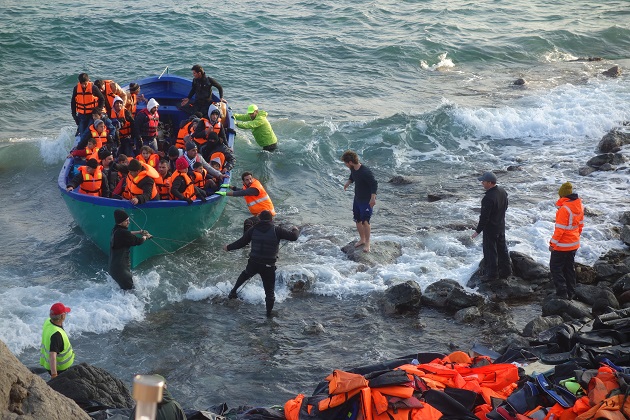
“In Lesvos, if you talked in Arabic to the refugees arriving, their eyes suddenly shined.” It is the experience of a group of volunteers from Egypt in the Greek island.
Now these Egyptian Christians have started a project to send Arabic Christians as volunteers to countries like Turkey, Lebannon, Holland, Germany, Greece, France and several Balkan countries.
“Give a Hand” is the name of the project which unites people and ministries coming from diverse Christians backgrounds (although most of them are evangelicals).
After a time of interviews and training, 70 volunteers are ready to go to Europe and serve asylum seekers.
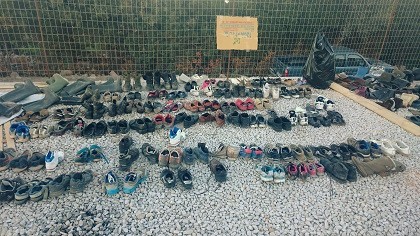
What does this initiative add to what others are already doing? “Egyptian Arabic-speaking volunteers are familiar with the cultural background of the refugees and are able to build deeper, authentic, complex relationships with the people they serve”, K., one of the organisers of the group, told Evangelical Focus.
These Egyptian Christians hope to be ready “to ask the right questions, use the right moment and, in-short, encourage the spiritual growth and gradual transformation of refugees alongside of their physical, social, and emotional health, and well-being”, he says.
RECEIVING REFUGEES IN LESVOS
L. is also part of the organising team of “Give A Hand” in Egypt. She is from a European country but has lived in Egypt for many years.
After visiting Lesvos (Greece) as a volunteer she “learned again to only trust in God, and not in materialistic things, as He is the only one who can provide and take care of me.”
“The situation is heart-breaking. Many times I’ve imagined how I would have felt if all of a sudden half of my family is in one boat and I am in another boat and we don’t know if we will make it to the other side.”
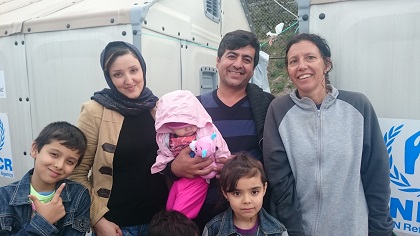
There, she has been “doing everything, from cleaning the tents after the refugees left, cooking for refugees, playing with children, talking to adults”, as well as “comforting and standing with them, showing them love and respect, listening to their sad stories and helping them to get into the buses which brought them to the next camp.”
SPEAKING TO REFUGEES IN THEIR OWN LANGUAGE
“I was in a transition camp, which was just after the refugees arrived by boat from Turkey. Many times the refugees would tell us that we were the first people who showed them respect and made them feel as human beings again.”
L. continues: “I think what impacted me most was the gratitude of the refugees, although they lost basically everything, including family members. They were still so grateful for our help, smiling at us and were even helping us many times. There were not many complaints, I think if people from a rich European country would have to flee and leave their homes, there would be a lot of complaints….”
L. points out how the people arriving to Lesvos were “thankful” to hear some of their helpers were speaking in Arabic. “It gave them kind of a feeling to finally be understood by somebody, and not being completely lost anymore.”
“They arrive very terrified and hopeless but when I was able to explain to them what the next steps are, where they would go next, it gave them some security, comfort and also hope.”
A BIBLICAL CONNECTION: PAUL GOING TO MYTILENE
Acts 20:14 was a key verse for L.: ‘When he met us at Assos, we took him aboard and went on to Mitylene.’ It was a key Bible verse to share with some refugees, “because Paul made the same route from Damascus to Mytiline.”
“This verse with the refugees opened conversations with them”, L. explains.
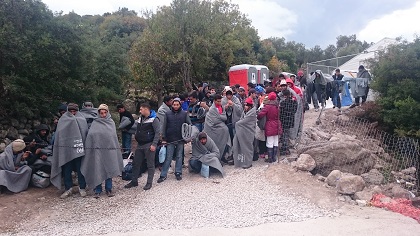
THE VISION BEHIND “GIVING A HAND”
K., organiser at “Give A Hand” told Evangelical Focus more about the project of this Egyptian Christians:
Question. What makes “Give a Hand” that makes this project distinct from other projects?
Answer. The goal of the ministry has been to make the ongoing work already happening among refugees in many countries more effective. We know that churches and organizations from Europe and the West are doing their best to address the needs of refugees—but they are limited by the language and cultural barrier.
For Christians, this should be a moment of great opportunity, with many Arabs experiencing the religious freedoms and protections of Europe. This is the first time many refugees will be encountering Christianity, but as it is, because of the language barrier, very few are able to ask questions or get clear answers from their hosts about Christianity.
From the beginning, the project was an initiative of Egyptian Christians. Just a year ago, after being in Germany with a gathering of Arab-speakers who are now living in Europe and praying for revival, one of the founders of “Give a Hand” was speaking at a Christian conference for Arabic speakers in Bern, Switzerland. He was shocked to learn that 90% of those in the group he was teaching were new believers: immigrants and refugees coming from the Middle East, with Muslim backgrounds.
He came back to Egypt filled with a new passion to ask what Egypt’s role in Europe should be, especially with the refugees. Things progressed quickly. As a ministry, “Give A Hand” only officially formed at the beginning of 2016, after a number of meetings where like-minded individuals had gathered and shared their hearts, visions, and in times of prayer and brain-storming.
“Give A Hand” is actually both a ministry and a network of individuals participating in refugee-ministry in Egypt and the Middle East—many of whom are leaders in their own right, representing their own organizations, and able to recruit and send from within their own ranks of volunteers, trainees, and co-workers. As a fusion of many different ministries, the DNA of the project invites and embraces collaboration.
It isn’t about making a name, or glorifying one leader, or one organization, or one church, or even one denomination. It is about the whole church building God’s kingdom together. Every time we meet, it is exciting to see the diversity of backgrounds and the wealth of experience and the resources represented around the room.
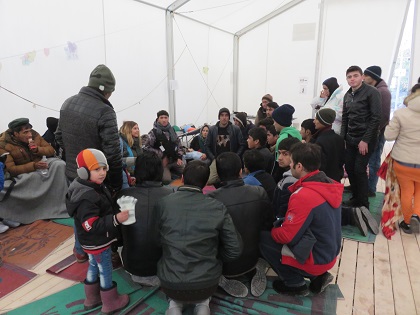
Q. How many volunteers do you plan to send this year?
A. This fiscal year, from mid-2016 to mid-2017, we believe that we will be able to send about 300 volunteers, for an average of about 1 month of service. In the last 2 months, already, since we have begun recruiting and interviewing, and only inviting the people we already know, we have already have a list of about 70 volunteers who are ready to go.
They fall into two categories: the larger group are Arabic-speakers who are also fluent in one of the European languages, and/or English; the remainder are only fluent in Arabic.
Also, a few of “Give-A-Hand”’s members have been making connections with potential partners in Europe. Some of our contacts are organizations with a refugee-ministry or an ongoing-presence in different countries, the rest only have a presence in one country.
Some are organizations who are hosting a group of volunteers from America or Australia. In every case, our volunteers are being asked to join a project that either requires them to serve as either a translator or a trainer, or to work directly with refugees, providing the kind of counselling for psychological, social, and emotional support which our volunteers are being trained for.
Q. How can Egyptian Arabic Christian volunteers help to make a difference, compared to European volunteers?
A. European volunteers are already doing a very good job, but Egyptian Arabic-speaking volunteers, who are familiar with the cultural background of the refugees, are able to build deeper, authentic, complex relationships with the people they serve.
They are able to ask the right questions, take advantage of the right moment, and, in-short, encourage the spiritual growth and gradual transformation of refugees alongside of their physical, social, and emotional health, and well-being.
Q. How can people in Europe pray for this project?
A. The biggest issues we are currently facing are with visas and fundraising, and, of course, coming into contact with the right volunteers, and identifying the right projects to send those volunteers to work with. Visas are very had to get, especially when travelling to certain countries—the rules are changing, and some countries are becoming notoriously difficult for Egyptians and Arabic speakers to visit. Although we have some ideas about how to address these challenges, we need great prayer, and we need partners whom God will call to work self-sacrificially beside, and in support of, our volunteers.
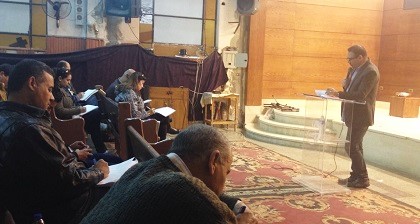
Published in: Evangelical Focus - europe - Egyptian Christians welcome refugees in Arabic: “Their eyes shine”
